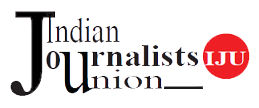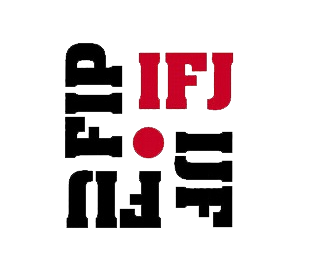The Indian Journalists’ Union's (IJU) two-day 9th Plenary, hosted by the Punjab and Chandigarh Journalists Union (PCJU) was held at Guru Nanak Dev University in Amritsar on 27-28 October, 2018, with over 270 delegates from 16 States attending.
The plenary discussed the burning issues affecting the fourth estate of democracy. It covered a range of issues and challenges concerning the safety of journalists and freedom of the media, a new wage board for journalists, Media Council, Committees to look into sexual harassment of women journalists at workplace, with the participants expressing apprehension over the rise of intolerance and atrocities against journalists across India.
Passing the leadership to his successor, outgoing President SN Sinha hoped that under the leadership of Amar Devulapalli and Sabina Inderjit, the IJU would touch new heights and emerge stronger and a larger organisation.
Deliberations
The Plenary called upon the Union government to enact a law for the protection of journalists without any further delay, as the demand has been long pending. The law was critical as the attacks and killings of journalists in the country were menacingly growing. “The irony is that in all the cases, the culprits are going scot free, as the report of none other than the Press Council Sub-committee on Safety of journalists has revealed,” it said. It noted that the media, which is acknowledged as the fourth estate was only seeking protection and not privileges like the other three organs of the State--Legislature, Executive and Judiciary.
More than 120 journalists were killed in the country in the last 25 years and 95 per cent of the cases are still languishing in the labyrinths of pending court cases. This year alone 7 journalists were killed so far including the assassination of the Rising Kashmir Editor Shujaat Bukhari in Srinagar in June this year. The case of prominent editor Gauri Lankesh who was killed in Bangalore in September last year is still at the investigation stage.
The Plenary felt that unprecedented attacks on journalists and the growing atmosphere of fear amongst the working journalists were not only impacting the profession but also the right of the citizen to get information, key to our democracy. “Further, this is impacting the Independence and freedom of the press, which again has come under grave threat. The governments both at the Centre and the States are trying to control media organisations by withholding of advertisements, blocking transmission of news channels by controlling cable operators, stopping other professional facilities and worse exerting pressure through misuse of investigating and enforcement agencies,” it said.
It called upon the working journalists in the country to come together to fight for freedom of expression, in defence of independent, safety and welfare of journalists. It sought all the political parties to include rights of the free media and welfare of the working journalists in their Manifestos in the forthcoming elections for State Assemblies and Parliament. It also called upon all the ruling parties to implement the promises made to the journalists in their election manifestos in the past.
The Plenary condemned the Union government’s manoeuvres to control the Press Council of India (PCI) and the Central Press Accreditation Committee (CPAC) and impinge on the right to freedom of expression and access to information. “The reconstitution of the 13th PCI is mired in controversy, and decisions taken by a truncated Council need to be overturned to restore the institution’s credibility. The IJU also expressed concern over the growing trend of ‘hire and fire’ and non-implementation of wage awards, notified by the Government of India.
The Plenary expressed solidarity with the women journalists who have courageously joined the MeToo# movement. The IJU demanded that the all media organisations set up the mandatory Internal Complaints Committee (ICC) and implement the guidelines, laid down by the Supreme Court in well known Visakha case. It pledged to stand by women journalists against sexual harassment at work the place and on line of duty, extend all required help.
In her acceptance speech, new Secretary General Sabina Inderjit highlighted the challenges of IJU and stated she wants to see changes in the union’s movement. She also sought cooperation from members from across the country and urged State units to set up their respective Gender Councils. She expressed concern over growing sexual harassment of women journalists in media houses and urged members to stand up against it.




